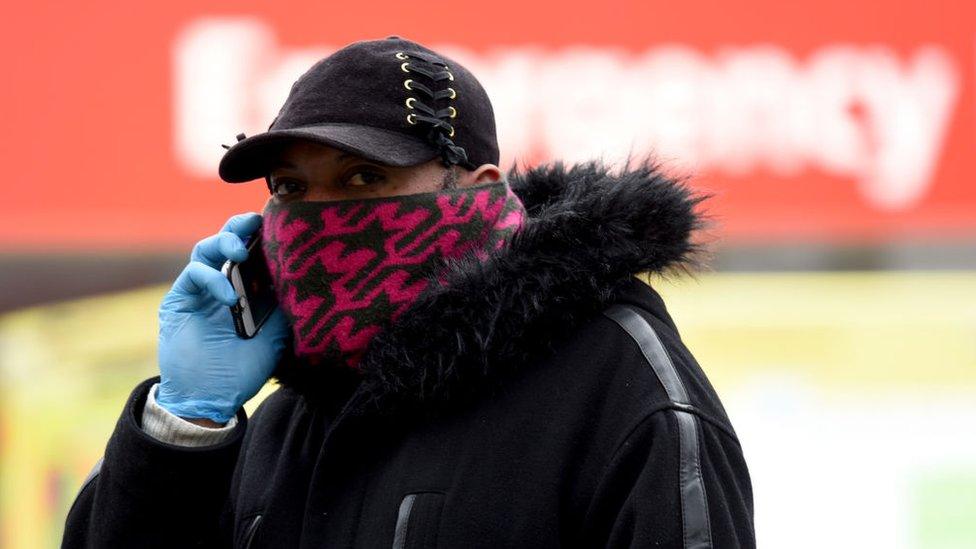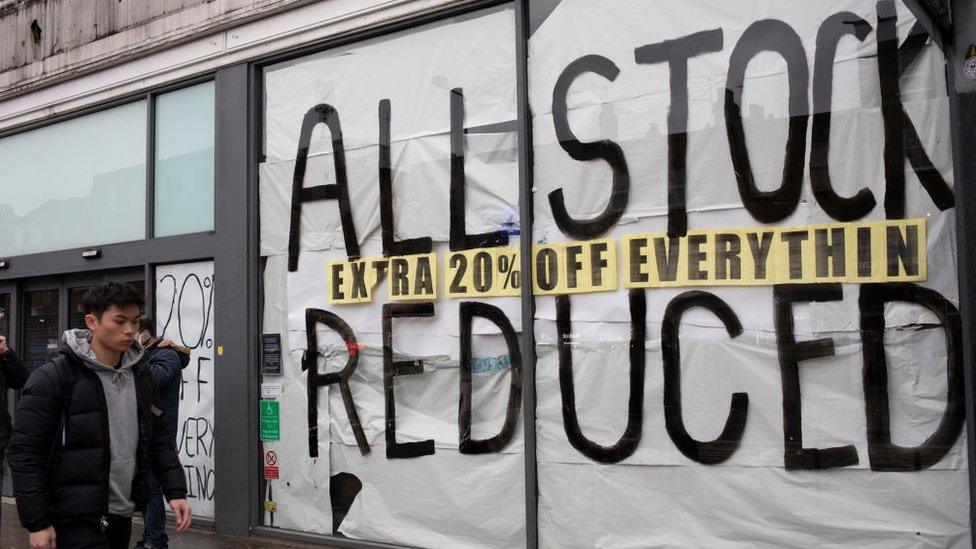Shops get rent break as told to pay what they can
- Published

The government has introduced new measures to prevent landlords from using aggressive methods to collect rent from High Street shops during the coronavirus lockdown.
The laws ban landlords from using statutory demands and winding up orders to claim rent unpaid due to the crisis.
Commercial tenants may also delay full payments, unless they owe more than three months of rent.
It is hoped the measures will safeguard the High Street and millions of jobs.
Business Secretary Alok Sharma said: "In this exceptional time for the UK, it is vital that we ensure businesses are kept afloat so that they can continue to provide the jobs our economy needs beyond the coronavirus pandemic.
"I know that like all businesses, [commercial landlords] are under pressure, but I would urge them to show forbearance to their tenants. I am also taking steps to ensure the minority of landlords using aggressive tactics to collect their rents can no longer do so while the COVID-19 emergency continues."
The government's Coronavirus Act 2020 came into force on 25 March. Section 82 of the act protects commercial tenants, external by banning the forfeiture of commercial leases until 30 June 2020 - or longer if the government deems necessary - for non-payment of rent.
However, that law did not prevent landlords from taking other actions in order to claim unpaid rent, such as using statutory demands, Commercial Rent Arrears Recovery (CRAR) or issuing orders to begin winding up proceedings.
That created problems for retailers and other businesses. On 14 April, British gym and leisure centre bosses warned the government that they faced being evicted due to a "worrying number" of landlords taking these steps to force tenants to pay rent.
'Valuable breathing room'
In announcing the new tenant protections, the government emphasised that it understood the pressures facing commercial landlords, and that it is working with banks and investors to address those issues.
"The temporary emergency measures are designed to acknowledge the pressures landlords are facing while encouraging cooperation in the spirit of fair commercial practice," added Mr Sharma. "They also come on top of a substantial package of business support measures, including a moratorium on evictions for commercial tenants for at least a 3-month period."

UK businesses need "breathing room" as social distancing measures are likely to be in place for some time, say industry bodies
Industry bodies like the British Retail Consortium and UK Hospitality said they welcomed the government's announcement.
Helen Dickinson, chief executive of the British Retail Consortium said: "We thank Alok Sharma for his swift action, which will give retailers some vital relief and help safeguard millions of jobs all across the country.
"We look forward to the finer details, however it is clear government is listening and willing to act."
UK Hospitality's chief executive Kate Nicholls said the new measures gave businesses "valuable breathing room".
"Many businesses in our sector have no revenue whatsoever coming in, so paying rents has been out of the question for some. This extra space will allow businesses to survive and to find a way to work with landlords," she stressed.
"If social distancing measures are to be in place for some time, as we now believe they will, this measure may need to be extended to ensure that businesses can survive."
But Andy Pyle, UK head of real estate at KPMG, said some landlords have turned to extreme measures because they are struggling in their dealings with commercial tenants.
"While there have been some instances of businesses facing such pressure from landlords, in some cases this has been because tenants haven't been prepared to engage or discuss their position," he said.
"There is a vital need for landlords and their customers or occupants to work collaboratively during this pandemic."
- Published14 April 2020

- Published16 April 2020

- Published1 April 2020
